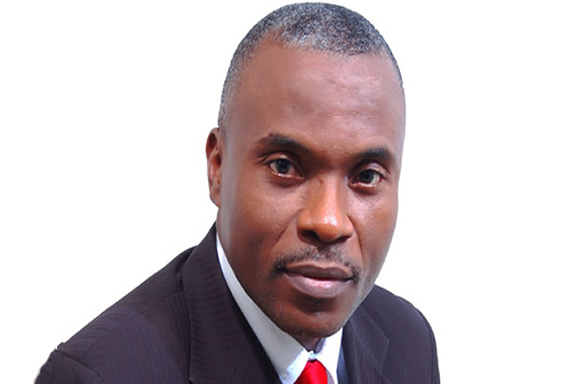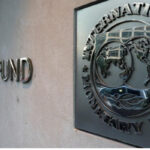
It is ironic that even though 2022 is the year that has given Nigerians the greatest scare financially and security-wise, it is also the year that has given Nigerians the greatest hope since the return of democracy in 1999. It is the year that renewed the hope of Nigerians in the possibility of Nigeria experiencing a turnaround if the right candidate is elected president in 2023.
Since 2009 when the Islamist fundamentalist group Boko Haram turned violent, Nigeria has been facing nonstop terrorism till today. At first, the activities of the group were restricted to some parts of the North-East (the states of Borno, Yobe and Adamawa). Then they spread their menace to some other cities in the North-West and North-Central, with occasional forays into the Federal Capital Territory.
While the government tried to push back against them, two deadly groups called the bandits and murderous herdsmen emerged. They are basically the same people operating in different formats. While the bandits overwhelm many parts of the North-West, collecting protection money from them, the herdsmen invade community after community in different parts of the country, trying to wipe them out. The bandits also waylay road travellers, kidnapping as many people as possible and demanding ransoms. In reality, the Boko Haram, bandits and herdsmen either work together or carry out similar attacks.
This made it hard for many farmers to operate their farms. Many had to abandon their communities, fleeing to safer places or refugee camps. Road trips became scary because of the fear of abduction and demand for outrageous ransoms. That made train trips and air trips popular. The recently-revived train route between Abuja, the capital city, and Kaduna, became so popular that it was extremely difficult to get tickets. Top officials of the government, military, police, legislature, and the business community snapped up all available tickets on that route.
When it seemed as if the elite had found a smart way to escape the fiendish grip of the bandits, they struck on March 28 in Katari, Kaduna State on an Abuja-Kaduna train. They used improvised explosive devices and firearms to stop the train. About eight people were killed and dozens kidnapped. It was so shocking that when one of the train passengers, Chinelo Megafu, a young medical doctor, posted on Twitter that she had been shot on the Kaduna-bound train, many Twitter users descended on her with their wrath, accusing her of spreading fake news in a bid to tarnish the image of the government. Later on, it dawned on the nation that it was not fake news and that the so-called safe haven for travellers had been breached.
A few days before that, the terrorists had launched an attack on the Kaduna airport. Even though they were eventually repelled by security operatives, they still succeeded in killing one airport guard.
The implication of the attacks was that rail and air travels, which used to be seen as safe, were no longer safe. Those who chose to continue to travel by road, rail or air did so with the full realisation that anything could happen. The abductions on the highways heightened, with religious leaders and traditional leaders not spared.
In the South-East, the activities of the separatist group, the Indigenous People of Biafra, did not abate. There were many attacks on different public buildings as well as on human beings. The police have accused IPOB of carrying out the attacks, but IPOB has continued to deny that, accusing security operatives of masterminding the attacks. Consequently, the attacks have continued to be credited to “unknown gunmen.”
Regarding the economy, for the first time in history, 1 USD exchanged for over N700 in 2022. Inflation soared to over 20 per cent and remained above 20 per cent all through the year. The country’s earnings became insufficient to service its debt. Nigeria’s Multidimensional Poverty Index report released in November 2022 showed that 63 per cent of Nigerians (or 133 million) are victims.
These issues and the divisive style of leadership of the President, Major General Muhammadu Buhari (retd.), created despair in most Nigerians. It became fashionable for financially-comfortable Nigerians to sell their houses and flee the country with their family.
However, in spite of all these scary and demoralising news stories, there were some key events in 2022 that brought hope and happiness to Nigerians. The first was the rekindling of faith in the masses, especially the youths, in the electoral process. Unlike in the past when the youths were detached and uninterested in elections, there was a surge by the youths to register to vote this year. The Independent National Electoral Commission, which used to beg people to register to vote, was besieged by millions of Nigerians who wanted to register. INEC had to extend the deadline for registration to accommodate as many people as possible. But by the time it eventually closed that door, millions were still desirous to register but could not. It was unprecedented.
What fired the people was the belief that with the improvement in the electoral process, especially with the introduction of the electronic transfer of results from polling units and the use of the Bimodal Voter Accreditation System, there is a high possibility that they can elect someone who will stop the bleeding, corruption and lack of direction that had held Nigeria down. That desire had made the youths to even shun distractions like the Big Brother Naija show that used to hold them captive.
The second was the world record Tobi Amusan broke in July in 100m hurdles at the World Athletics Championships, held in Oregon, United States. Amusan had broken the world record in the semi-finals with a time of 12.12 seconds. Kendra Harrison of the United States held that record since 2016 with 12.20 seconds. At the final, Amusan took the matter a step further by breaking her new world record with a time of 12.06 seconds. However, her finishing time of 12.06 was ruled out because of strong wind speeds, leaving her with 12.12 seconds as her official world record time.
Two weeks later at the 2022 Commonwealth Games in Birmingham, England, Amusan showed that her performance was not a flash in the pan. Not only did she defend her Commonwealth Games title, she also set a new Commonwealth Games record of 12.30 seconds in the 100m hurdles. In addition, she and other athletes gave Nigeria her best performance ever at the Commonwealth Games with a win of 12 gold medals.
The third source of pride and joy to Nigerians this year was the performance of some Nigerian musicians at the 2022 World Cup in Qatar. Even though the Nigerian football team, the Super Eagles, did not qualify for the 2022 World Cup, Nigerian musicians featured prominently at the event. While Kizz Daniel and Patoranking performed at the fans zone, Davido performed at the closing ceremony of the World Cup. It was a testimony to the global stature Nigerian music has attained. Therefore, while football could not take Nigeria to the World Cup, music took Nigeria there!
For a people that have become accustomed to negative news emanating from their country, it was uplifting to find events that brought joy, pride and hope to Nigerians in the midst of all the gloom and despondency.
– Twitter: @BrandAzuka





